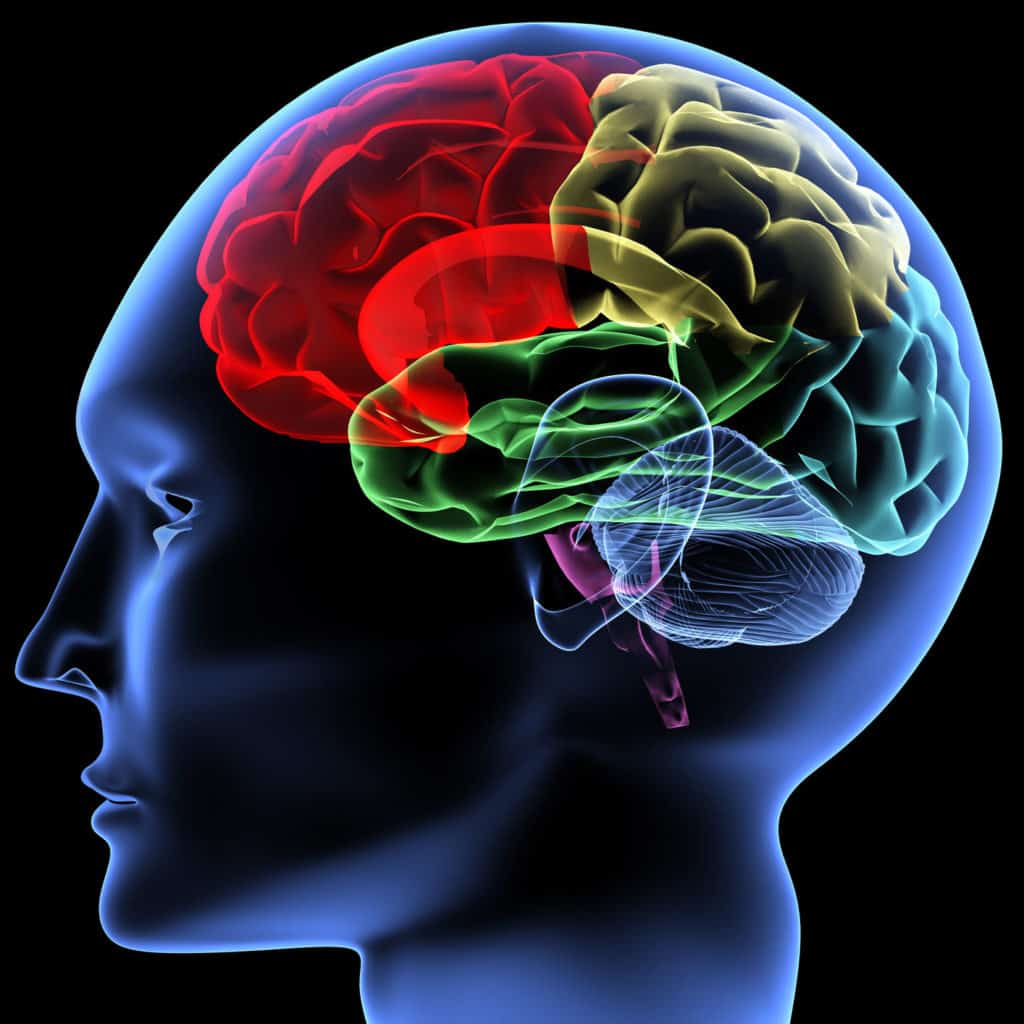By Melanie Pinola on Lifehacker

Dear Lifehacker,
I keep seeing the word “mindfulness” everywhere, tied to everything from losing weight to being more productive. But what does this vague word actually mean, and how can I apply mindfulness to my life?
Signed,
Maybe Mindful
Dear MM,
Mindfulness is a hot topic these days, just like meditation. As you’ve noticed, it’s getting more attention in the news as more studies come out showing the benefits of mindfulness. While it might sound like a New Age-y term (or maybe even psychobabble to some), there’s real evidence that being more mindful can enhance just about every aspect of your life—and it doesn’t take hours sitting in lotus position to get there. Here’s what you need to know.
What Mindfulness Is
Mindfulness has many synonyms. You could call it awareness, attention, focus, presence, or vigilance. The opposite, then, is not just mindlessness, but also distractedness, inattention, and lack of engagement.
Mindfulness is both a practice and a state of mind (for lack of a better word). For example, when you practice mindfulness meditation, you’re sharpening your focus (usually by paying more attention to your breath) and training your brain to be more mindful long after you’re done meditating. When you’re exhibiting mindfulness, you’re fully engrossed in whatever’s going on around you. (There are other mindfulness exercises beyond meditating, as you’ll see below, and there are many other types of meditation as well, so while the two are closely related, they’re not the same.)
You can think of mindfulness as simply being fully in the moment (Dr. Jon Kabat-Zinn defines it in the video above as “paying attention on purpose, in the present moment, non-judgmentally—as if your life depended on it). That might be the simple definition, but being engaged 100% doesn’t come easy, especially in our world of distractions. It means actively listening and not zoning out (even a little) when your co-worker tells the same story for the third time, and it means using all your senses in even mundane situations like washing the dishes or walking to the bus stop.
Mindfulness has roots in Buddhist philosophy and religion, and is considered very important for the path to enlightenment. Wikipedia says (emphasis mine):
Enlightenment (bodhi) is a state of being in which greed, hatred and delusion (Pali:moha) have been overcome, abandoned and are absent from the mind. Mindfulness, which, among other things, is an attentive awareness of the reality of things (especially of the present moment) is an antidote to delusion and is considered as such a ‘power’ (Pali:bala). This faculty becomes a power in particular when it is coupled with clear comprehension of whatever is taking place.
But it also takes on new, secular definition when viewed from a Western psychology lens. Dr. Ellen Langer, a Harvard psychology professor, literally wrote the book on a slightly different concept of mindfulness. She defines mindfulness as including these important attributes:
- Continual creation of new categories: Instead of relying rigidly on old categories and labels, mindfulness is paying attention to the situation and context and seeing new distinctions. For example, instead of seeing a brick as simply a building object, you could also consider it a bookend, a weapon, a doorstop, and much more.
- Welcoming new information and seeing more than one point of view: Like category making, mindfulness also implies continually receiving new information and being open to new cues (social and otherwise). You and your partner, for example, might seem to be set in your ways and fight about the same old things, but being open to the other person’s point of view would change that dynamic.
- Putting process over outcome: Focusing on each step rather than getting anxious about results. Instead of worrying about acing a test, for example, concentrate on truly learning the subject.
In short, mindfulness is about tuning in and being more aware of every experience. This part of William Blake’s poem “Auguries of Innocence” best describes, to me, this kind of attentiveness:
To see a world in a grain of sand
And a heaven in a wild flower
Hold infinity in the palm of your hand
And eternity in an hour.
The Benefits of Mindfulness
So what’s the point, you ask? As the definitions above hint, increased mindfulness could help you become more focused, more creative, happier, healthier, more relaxed, and in control. It can also help you more fully appreciate each precious current moment (which is all we have, really). Here are some of the most recent studies related to mindfulness. Mindfulness training may:
- Improve memory and academic performance (PsyBlog). In this study, students who did attention-building exercises had increased focus (or less mind-wandering), better short-term memory, and better performance on exams like the GRE, which as supposed to be uncoachable.
- Help with weight loss and eating healthier foods. Mindful eating means paying attention to each bite and eating slowly while paying attention to all your senses (Harvard Medical School, Womens Health). Participants in mindfulness studies ate fewer calories when they were hungrier than the control groups.
- Lead to better decision-making. A couple of experiments associate mindfulness meditation or just a natural tendency to be more mindfully aware with being less prone to the sunk-cost bias, our tendency to stick with lost causes—such as a bad relationship or deadend job—because of the time and energy already invested (BPS Research).
- Lower stress and help cope with chronic health issues. A meta-analysis of 20 empirical reports found mindfulness increased both mental and physical well-being in patients with chronic pain, cancer, heart disease, and more (Elsevier).
- Improve immunity and create positive brain changes. Researchers measured brain activity before and after volunteers were trained in mindfulness meditation for eight-weeks (Psychosomatic Medicine).
- And offer all the other brain benefits we’ve seen from mindfulness meditation. Better focus, more creativity, less anxiety and depression, and more compassion to name a few.
How You Can Practice Mindfulness
Unfortunately, mindfulness isn’t a switch you can just flip and then all of the sudden you’re Mr./Miss Mindful for the rest of your life. But it’s something you can cultivate.
Curbing distractions and just saying no to multitasking can help you focus more, but distraction-busting tools might also just be crutches. Mindfulness requires you to be more aware even in the busiest and most stressful situations (and that’s when it comes in most useful too).
A simple way to get started is to set up triggers or cues to pull you back into the present when your mind inevitably starts to wander throughout that day. For example, while eating, remember to savor each bite every time you put your fork down. At work, you can set an hourly chime or other reminder to pause in the moment. Pausing before you respond to children—or adults—can also help you become more mindful in your relationships. More (deceptively simple) practices include practicing appreciation and letting go of control.
In the college study mentioned above, the mindfulness training that lead to better memory and learning involved these six steps:
(a) sitting in an upright posture with legs crossed and gaze lowered,
(b) distinguishing between naturally arising thoughts and elaborated thinking,
(c) minimizing the distracting quality of past and future concerns by reframing them as mental projections occurring in the present,
(d) using the breath as an anchor for attention during meditation,
(e) repeatedly counting up to 21 consecutive exhalations
(f ) allowing the mind to rest naturally rather than trying to suppress the occurrence of thoughts.
You might be familiar with this as mindfulness meditation—one of the best ways to cultivate mindfulness. It’s exercise for the brain, and you can do it while going about your day. (One strategy might be to pick one part of your everyday routine to use for mindfulness training, such as when you shower or walk the dog.)
One final note: While practicing mindfulness is very beneficial, there are times when it’s better to let your mind wander. The New York Times reports that creativity and insight may depend on letting your mind wander and daydream, and one study suggests higher mindfulness might be connected with weaker “implicit learning” (unconsciously kicking up new skills or habits).
After meditation upon such sacrilegious findings, no doubt the Buddha, who taught a middle way between worldly and spiritual concerns, would have agreed that there is a time for using mindfulness to discover inner truths, a time for using it to survive a battle or an exam and a time to let go of mindfulness so that the mind may wander the universe.
Your mission, if you choose to accept it, is to find those balanced times between turning on the awareness and taking a mental break.
Love,
Lifehacker
What Is “Mindfulness,” and Why Is Everyone Talking About It? | Lifehacker.com










